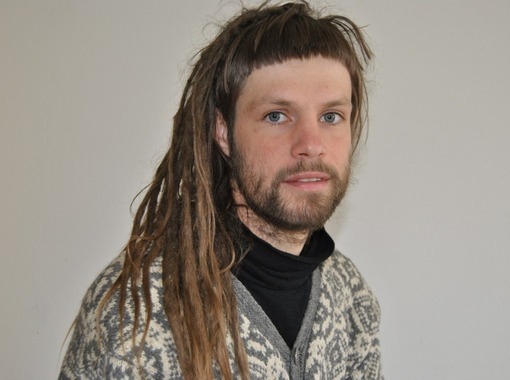Midway evaluation in Earth Sciences - Christian Klopsch

Zoom
Live stream link: https://eu01web.zoom.us/j/69266351555
Title: The effects of long-term grazing exclusion on carbon dynamics in Icelandic grasslands.
Doctoral candidate: Christian Klopsch
Doctoral committee:
Anna Guðrun Þórhallsdóttir – Professor at Hólar University
Áslaug Geirsdóttir – Professor at University of Iceland
Björn Þorsteinsson – Professor at Agricultural University of Iceland
René van der Wal – Professor at the Swedish University of Agricultural Sciences
Richard Bardgett – Professor at University of Manchester
Abstract
Rising atmospheric CO2 levels, caused by human intervention in the carbon cycle, generate a climate change that jeopardises the livelihood of humans and many other organisms. Paradoxically, despite the removal of a large proportion of aboveground plant biomass, it has been shown that natural grazing can increase belowground carbon allocation, resulting in the typically carbon-rich grassland soils. Grazing in grasslands can thus be a potent strategy to remove atmospheric CO2 via soil carbon sequestration, i.e., the enhanced storage of carbon in soils of terrestrial ecosystems. In Iceland, livestock-related land use practises are the country’s most important source of greenhouse gas emissions and grazing has been linked to detrimental soil erosion and loss of vegetation cover. But the carbon sequestration potential of grazing in the islands’ grasslands is yet to be addressed. In my PhD project, I analyse how grazing cessation affects carbon cycling in Icelandic grasslands. For this purpose, I use farmland sites all around the lowlands in paired contrasts of continued grazing and multi-decadal grazing protection. With this project, the aim is to improve our understanding of grazing-grassland interactions with carbon cycling and contribute to improved carbon balance of the grazed grasslands. In 2022, in collaboration with my supervisors and project partners, I gathered data in North and East Iceland on (1) carbon fluxes between the atmosphere and the surface, (2) biotic and abiotic ecosystem parameters, (3) vegetation composition, (4) aboveground biomass, and (5) root density and (6) soil carbon down to 60 cm soil depth. The first results demonstrate that net carbon uptake was on average ~50 % lower in long-term grazing exclosures compared to grazed sites. I found site-specific differences in carbon fluxes that were driven both by altered gross primary production and ecosystem respiration. Other measured ecosystem parameters were also significantly affected by grazing exclusion. These results suggest that there exists a positive relationship between grazing and carbon sequestration in Icelandic grasslands. However, only the data analysis of soil organic carbon measurements will reveal if the differences in growth-season fluxes cumulate into net changes in soil carbon storage. This will be the next step of my project.
Christian Klopsch



